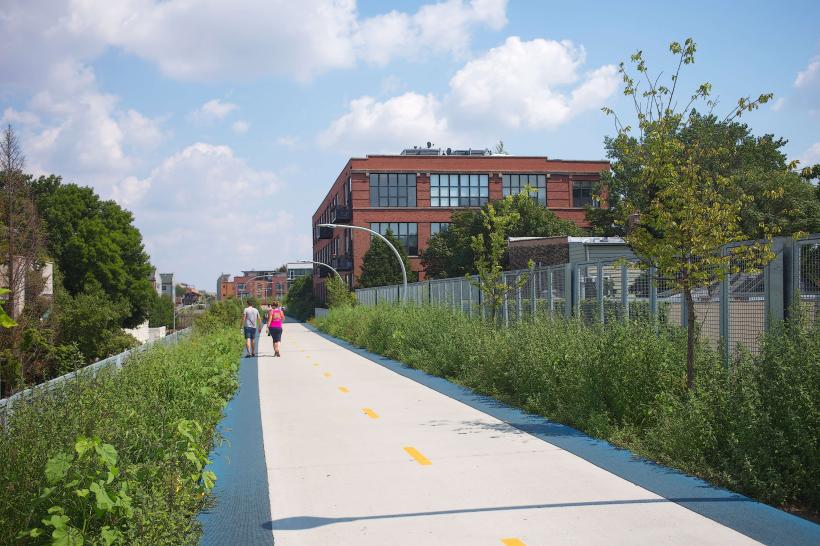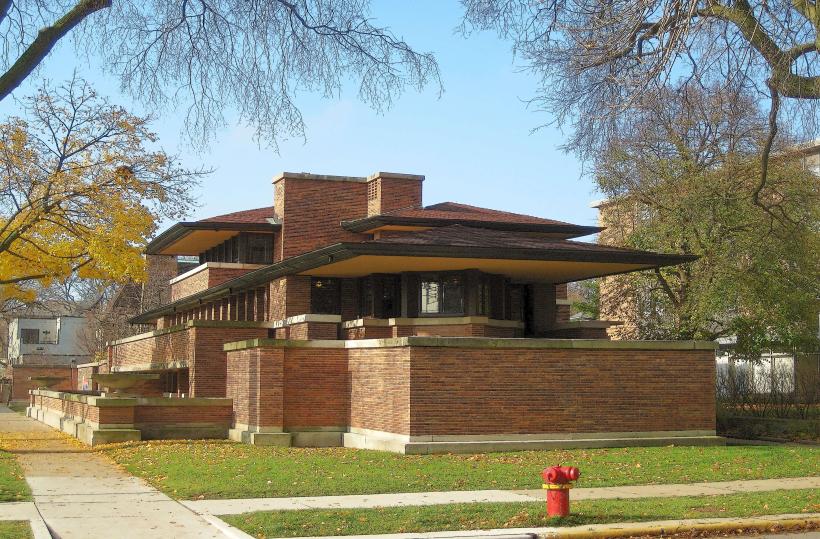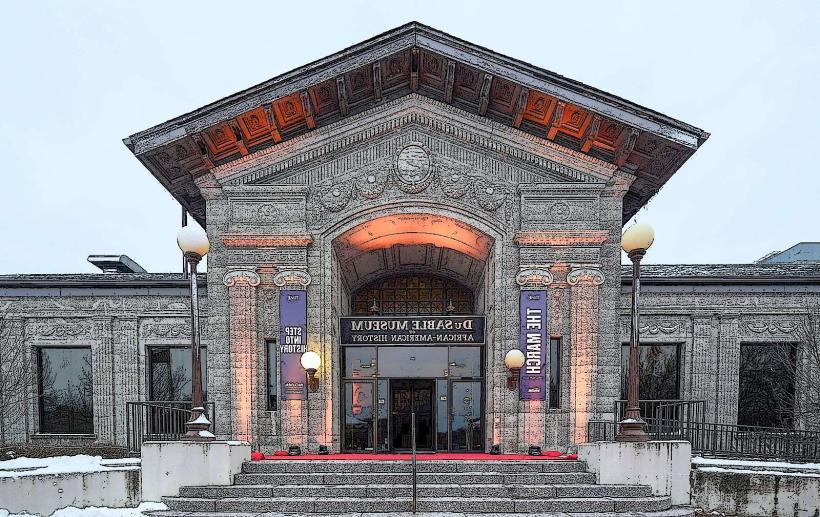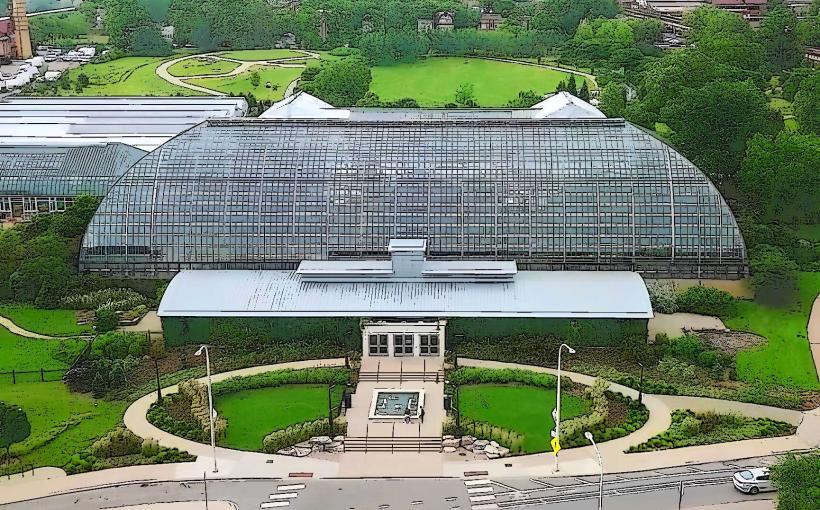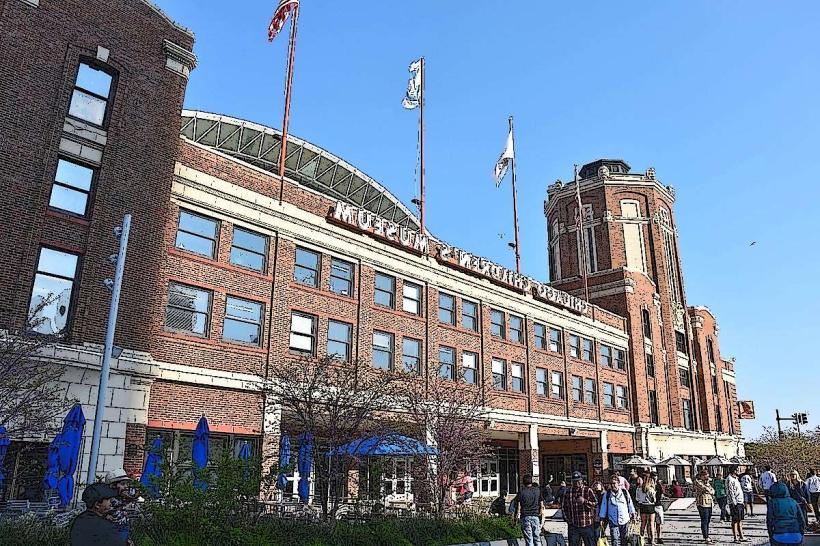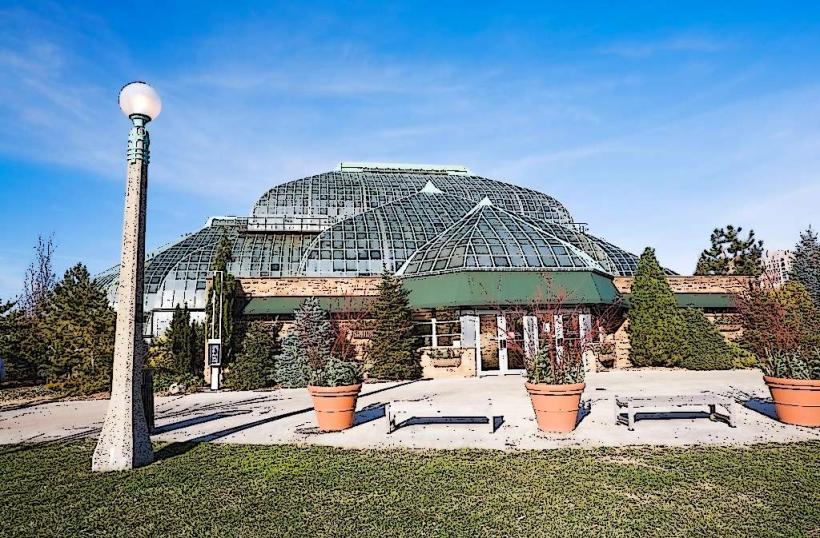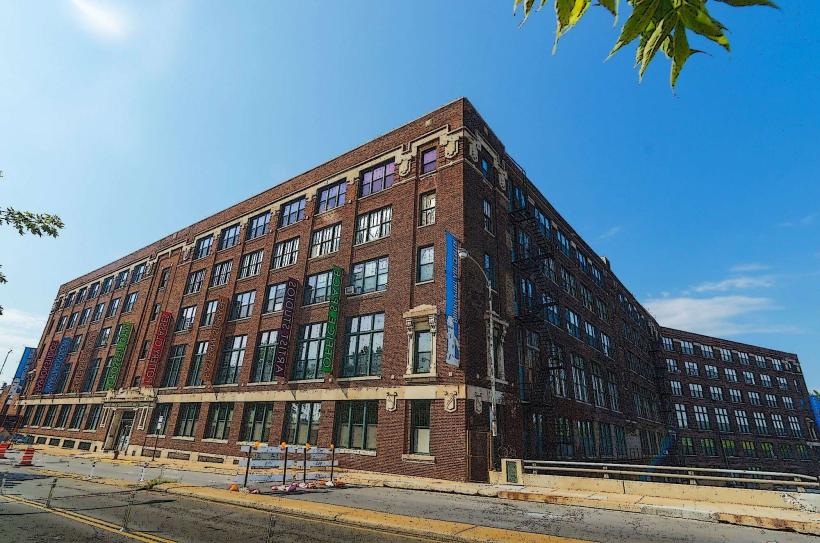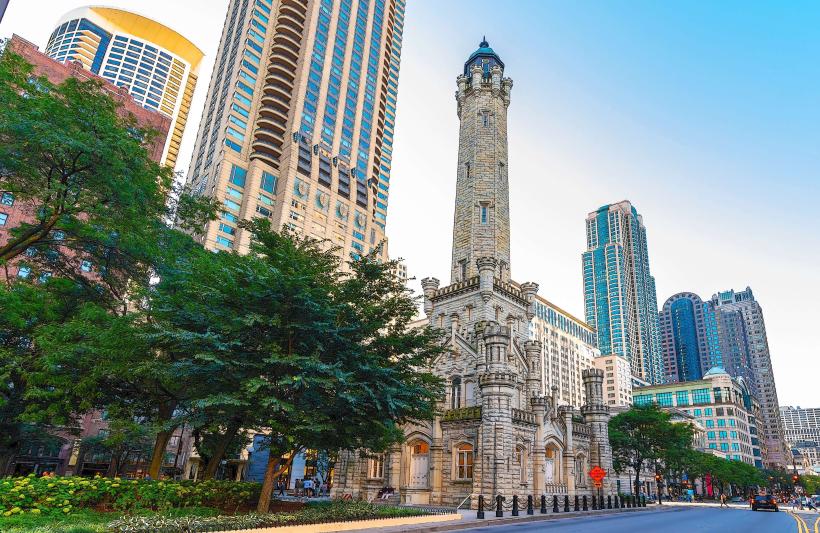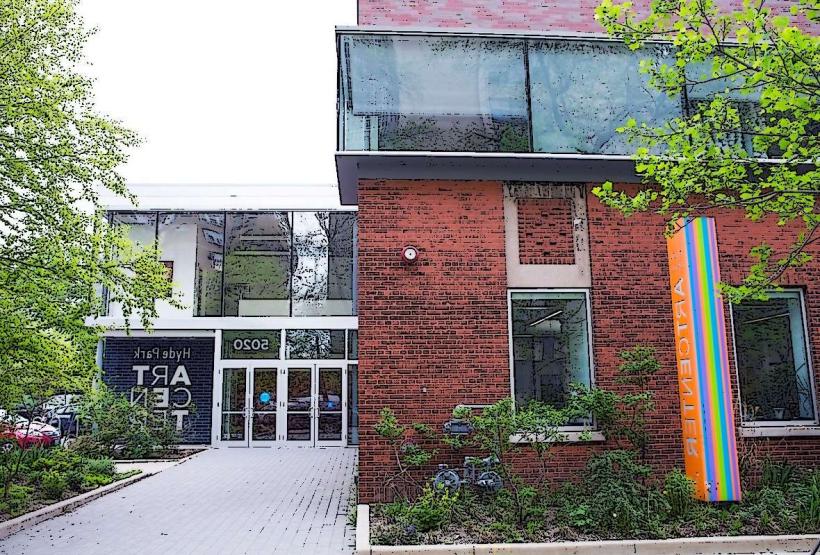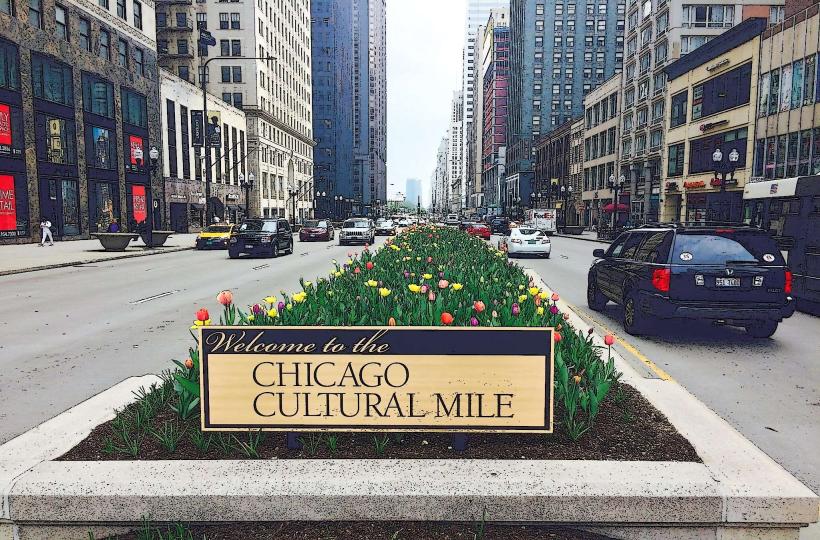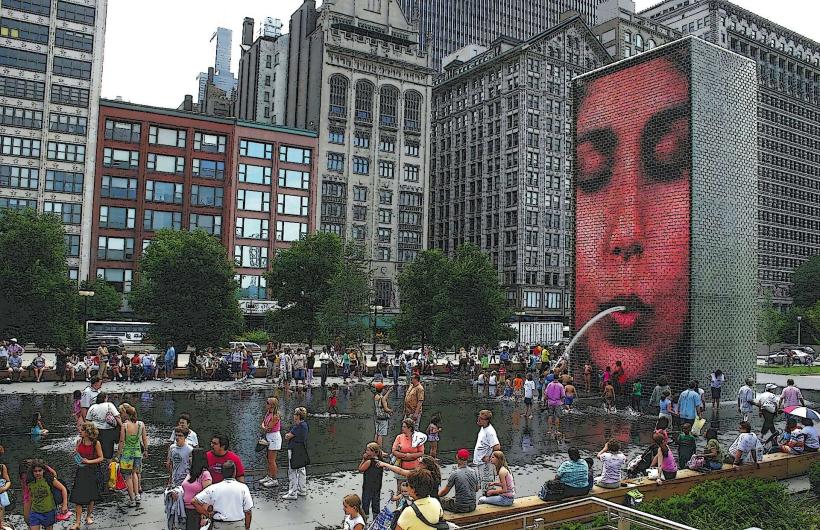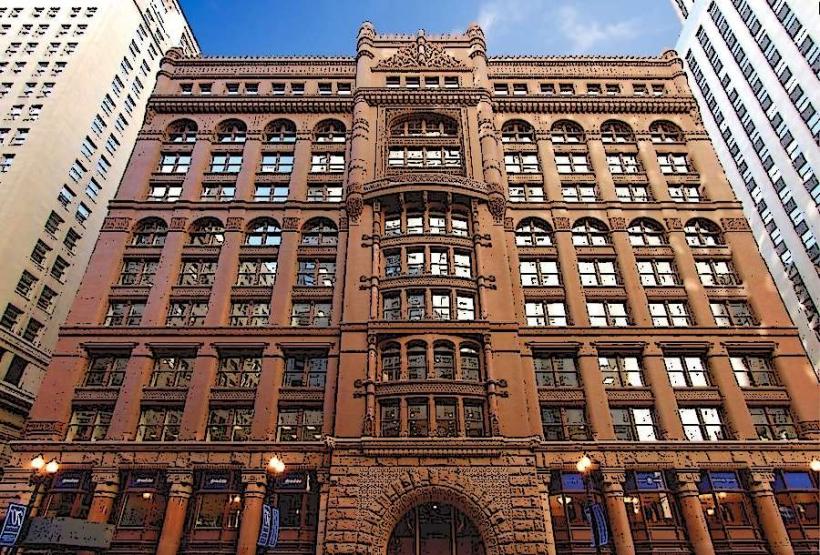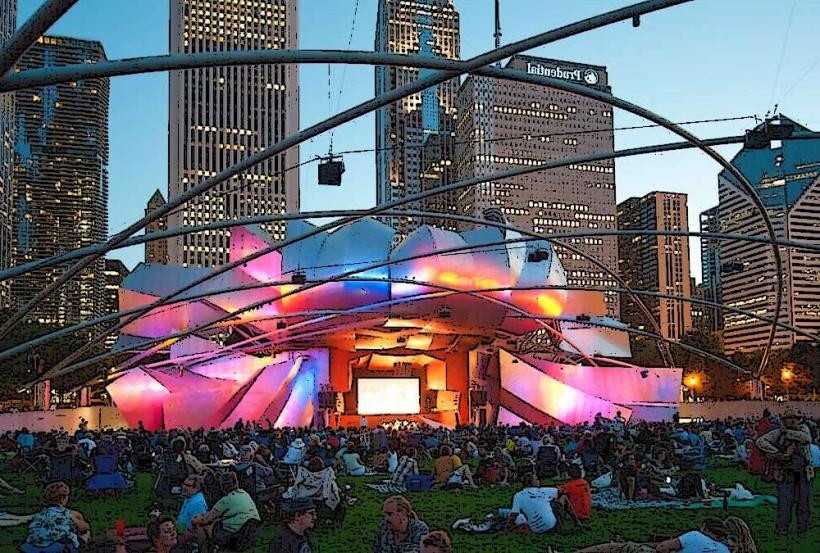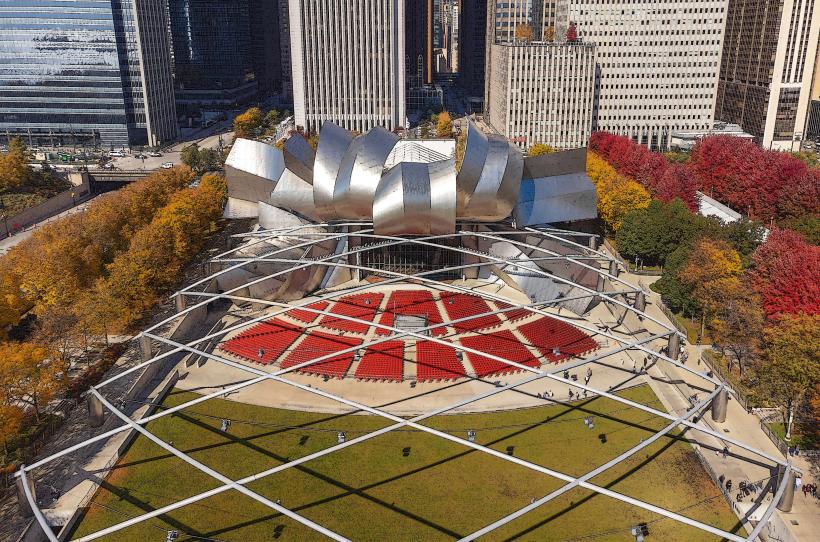Information
Landmark: Peggy Notebaert Nature MuseumCity: Chicago
Country: USA Illinois
Continent: North America
Peggy Notebaert Nature Museum, Chicago, USA Illinois, North America
The Peggy Notebaert Nature Museum is an environmental museum located in Chicago, Illinois, USA.
It focuses on the natural world and conservation efforts within the Midwestern United States.
Visual Characteristics
The museum building is constructed primarily of brick and glass, featuring a contemporary architectural design. It incorporates green roof elements and large windows to maximize natural light. The interior spaces are designed to be adaptable for various exhibits, with open floor plans and dedicated gallery areas.
Location & Access Logistics
The museum is situated at 2431 West Fullerton Avenue, Chicago, IL 60647. It is approximately 6.5 kilometers northwest of the Chicago Loop. Public transportation options include the CTA bus lines 74 Fullerton and 52 Kedzie/California. Limited on-site parking is available, with additional paid parking options in the vicinity.
Historical & Ecological Origin
The museum building was constructed in 1999, designed by architect Jeanne Gang of Studio Gang Architects. It was established to provide a dedicated space for environmental education and to showcase the biodiversity of the region. The site itself is part of the Lincoln Park, a large urban park established in the late 19th century.
Key Highlights & Activities
Visitors can explore exhibits on local ecosystems, including the Judy Istock Butterfly Haven, a climate-controlled habitat housing hundreds of live butterflies. The museum offers interactive displays on water conservation, urban wildlife, and climate change. Educational programs and workshops are regularly scheduled.
Infrastructure & Amenities
Restrooms are available on-site. Shaded areas are provided by the building's architecture and surrounding trees. Cell phone signal (4G/5G) is generally reliable within the museum. A small cafe is located within the museum, and food vendors are present in Lincoln Park during warmer months.
Best Time to Visit
The Judy Istock Butterfly Haven is most active during warmer daylight hours. For optimal lighting for photography of exhibits, consider visiting in the late morning or early afternoon. The museum is open year-round, with weekdays generally less crowded than weekends.
Facts & Legends
The museum's butterfly haven is designed to mimic the natural habitats of various butterfly species, requiring precise temperature and humidity controls. A unique feature is the "living roof," which helps insulate the building and manage stormwater runoff.
Nearby Landmarks
- Lincoln Park Zoo (1.2km Northeast)
- Lincoln Park Conservatory (1.5km Northeast)
- North Avenue Beach (2.5km East)
- Lincoln Park Cultural Center (1.8km Northeast)
- Alfred Caldwell Lily Pool (1.6km Northeast)


